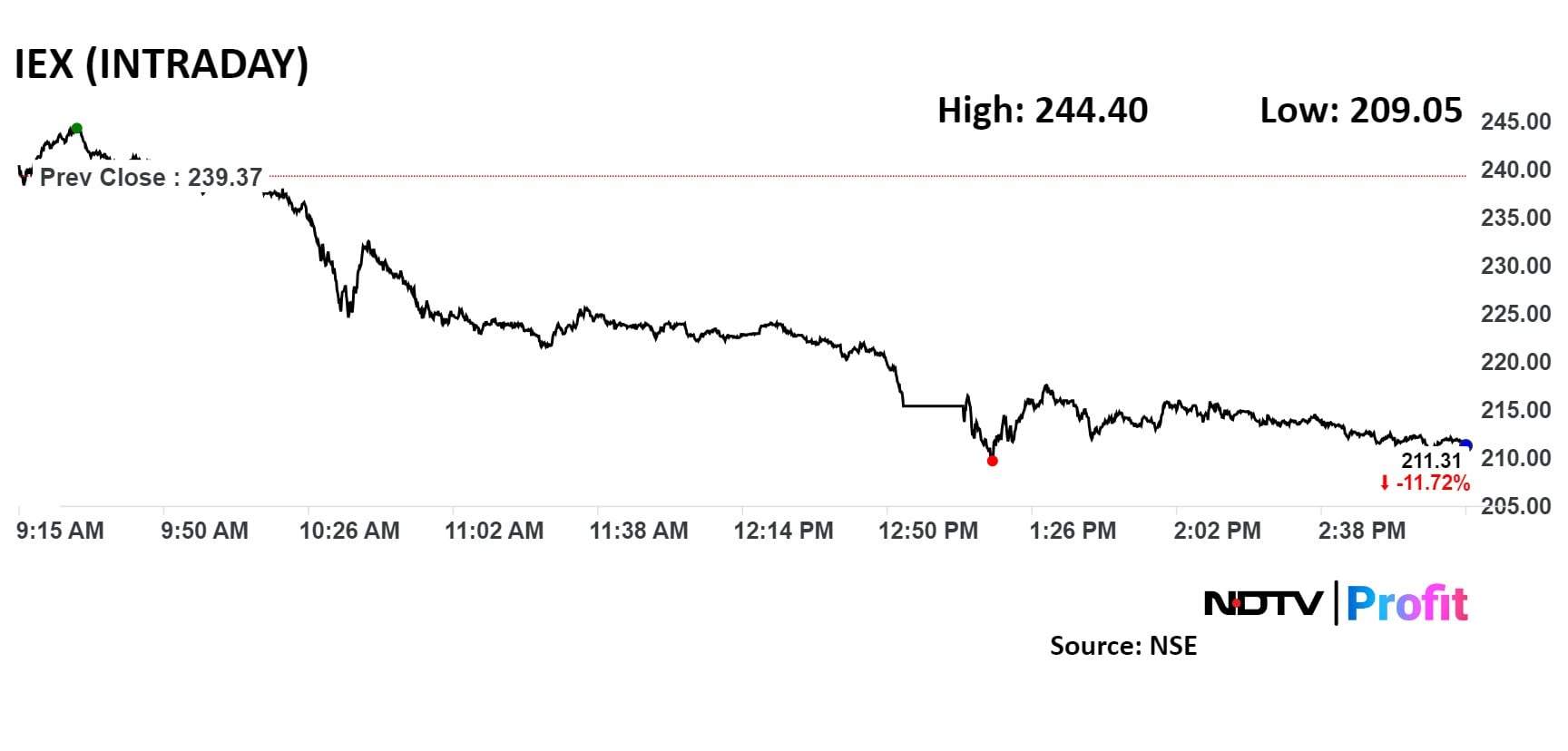
Shares of Indian Energy Exchange Ltd., which dominates the power trading business, plunged over 12% on the bourses on Tuesday, after reports said that the government is looking to implement market coupling for power exchanges.
Following the news reports, the stock tanked to a low of Rs 209.05 on the National Stock Exchange, down 12.67% as against the previous day's close.
As per the reports, the Union Ministry of Power has asked Grid Controller of India to complete its pilot study on market coupling. The government is also exploring its implementation from the end of fiscal 2024-25 or early fiscal 2026, they added. NDTV Profit could not independently verify the development.
Under the market coupling mechanism, all buy and sell bids are collated to derive a uniform market price across all power exchanges.
In June last year, the power ministry had asked the Central Electricity Regulatory Authority to start the process of consultation for market coupling for all the power exchanges.
Notably, India currently has three power exchanges: IEX, Hindustan Power Exchange, and Power Exchange India.
IEX, with a market share of 84%, is seen as the most trusted platform for electricity spot price determination in India. However, the introduction of a full-fledged market coupling implies an independent third party will gather all buy and sell bids to arrive at uniform market price.
Nuvama Securities, in a note released last year, said market coupling holds the potential to "negate IEX's 'moat', as other exchanges can eat into its market share over time."

IEX shares were trading 11.69% lower at Rs 211.39 per share, compared to a marginal rise of 0.01% in the benchmark Nifty 50 as of 3:17 p.m.
The stock has risen 26.17% year-to-date, and the surge has been sharper at 62% in the last 12 months. Total traded volume so far in the day stood at 8.3 times its 30-day average. The relative strength index was at 60.
Eight of the 13 analysts tracking the company have a 'buy' rating on the stock, two suggest a 'hold' and three have a 'sell', according to Bloomberg data. The average 12-month analysts' price targets implies a potential downside of 1.6%.
Essential Business Intelligence, Continuous LIVE TV, Sharp Market Insights, Practical Personal Finance Advice and Latest Stories — On NDTV Profit.






















